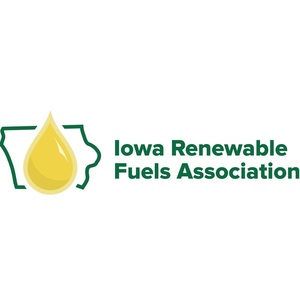IRFA: Anti-carbon capture legislation a blow to future ethanol and corn markets

On May 12, the Iowa Senate voted 27-22 to pass House File 639, effectively banning carbon capture and sequestration (CCS) projects in the state. The vote goes against farmers and ethanol producers seeking to unlock huge new markets around the world that are demanding ultra-low carbon ethanol.
“IRFA is deeply disappointed by today’s vote,” said Iowa Renewable Fuels Association Executive Director Monte Shaw. “After enduring the largest two-year income drop in history, farmers are desperate to find new markets. CCS is the key to unlocking massive new demand for ethanol and corn around the world. For three years, IRFA has sought to work on a middle ground approach that enhanced landowner rights and protections but would allow CCS projects a path forward. While a majority of the Iowa Senate turned their back on Iowa agriculture tonight, IRFA thanks those who stood for common sense.”
House File 639 essentially bans all CCS projects, even those that might achieve 100% voluntary easement, by putting permit restrictions in place making them not economically viable. Despite rhetoric from supporters of the bill, it fails to enhance property owner rights and targets only CCS projects. All other future privately owned projects, including crude oil, wind and solar, would not be impacted by the bill. The legislation does nothing to enhance support for land restoration, soil compaction remediation, tile replacement, or lost yields.
“For 25 years, Iowa has benefited greatly from being the most profitable place in the world to convert corn kernels into ethanol,” added Shaw. “Once the Tallgrass CCS pipeline in Nebraska begins operations later this year, that will no longer be the case. If this legislation goes into effect, there will be very real, very severe economic consequences as others, like Nebraska, North Dakota, and Brazil, move forward with CCS. Iowa is poised to be left behind. Expansion plans will be shelved, and we could see additional plant closures over time as the CCS-enabled plants elsewhere expand. IRFA members will be asking Gov. Reynolds to stand up for their future and the future of rural Iowa by vetoing this misguided legislation.”
According to the Farm Journal March Ag Economists’ Monthly Monitor, 62% of the 70 ag economists from across the nation confirm the economic decline is expected to continue into 2025. CCS is the most cost-effective and impactful tool to unlock new markets that demand ultra-low carbon ethanol, such as heavy-duty engines, ocean-going vessels, rail and sustainable aviation fuel (SAF). Estimates for SAF alone are pegged at 100 billion gallons annually worldwide, potentially increasing corn grind by billions of bushels.
To Read more about Ethanol Industry & Bio Energy News, continue reading Agriinsite.com
Source : Ethanol Producer Magazine

















